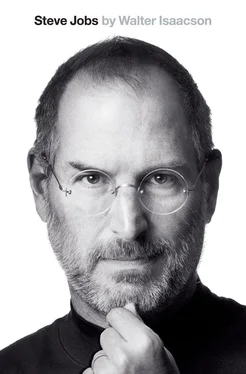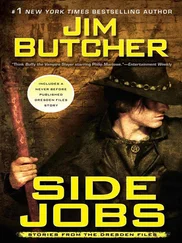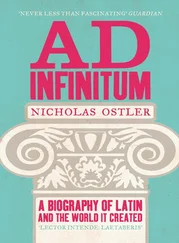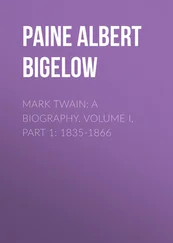The chip industry gave the region a new name when Don Hoefler, a columnist for the weekly trade paper Electronic News , began a series in January 1971 entitled “Silicon Valley USA.” The forty-mile Santa Clara Valley, which stretches from South San Francisco through Palo Alto to San Jose, has as its commercial backbone El Camino Real, the royal road that once connected California’s twenty-one mission churches and is now a bustling avenue that connects companies and startups accounting for a third of the venture capital investment in the United States each year. “Growing up, I got inspired by the history of the place,” Jobs said. “That made me want to be a part of it.”
Like most kids, he became infused with the passions of the grown-ups around him. “Most of the dads in the neighborhood did really neat stuff, like photovoltaics and batteries and radar,” Jobs recalled. “I grew up in awe of that stuff and asking people about it.” The most important of these neighbors, Larry Lang, lived seven doors away. “He was my model of what an HP engineer was supposed to be: a big ham radio operator, hard-core electronics guy,” Jobs recalled. “He would bring me stuff to play with.” As we walked up to Lang’s old house, Jobs pointed to the driveway. “He took a carbon microphone and a battery and a speaker, and he put it on this driveway. He had me talk into the carbon mike and it amplified out of the speaker.” Jobs had been taught by his father that microphones always required an electronic amplifier. “So I raced home, and I told my dad that he was wrong.”
“No, it needs an amplifier,” his father assured him. When Steve protested otherwise, his father said he was crazy. “It can’t work without an amplifier. There’s some trick.”
“I kept saying no to my dad, telling him he had to see it, and finally he actually walked down with me and saw it. And he said, ‘Well I’ll be a bat out of hell.’”
Jobs recalled the incident vividly because it was his first realization that his father did not know everything. Then a more disconcerting discovery began to dawn on him: He was smarter than his parents. He had always admired his father’s competence and savvy. “He was not an educated man, but I had always thought he was pretty damn smart. He didn’t read much, but he could do a lot. Almost everything mechanical, he could figure it out.” Yet the carbon microphone incident, Jobs said, began a jarring process of realizing that he was in fact more clever and quick than his parents. “It was a very big moment that’s burned into my mind. When I realized that I was smarter than my parents, I felt tremendous shame for having thought that. I will never forget that moment.” This discovery, he later told friends, along with the fact that he was adopted, made him feel apart—detached and separate—from both his family and the world.
Another layer of awareness occurred soon after. Not only did he discover that he was brighter than his parents, but he discovered that they knew this. Paul and Clara Jobs were loving parents, and they were willing to adapt their lives to suit a son who was very smart—and also willful. They would go to great lengths to accommodate him. And soon Steve discovered this fact as well. “Both my parents got me. They felt a lot of responsibility once they sensed that I was special. They found ways to keep feeding me stuff and putting me in better schools. They were willing to defer to my needs.”
So he grew up not only with a sense of having once been abandoned, but also with a sense that he was special. In his own mind, that was more important in the formation of his personality.
School
Even before Jobs started elementary school, his mother had taught him how to read. This, however, led to some problems once he got to school. “I was kind of bored for the first few years, so I occupied myself by getting into trouble.” It also soon became clear that Jobs, by both nature and nurture, was not disposed to accept authority. “I encountered authority of a different kind than I had ever encountered before, and I did not like it. And they really almost got me. They came close to really beating any curiosity out of me.”
His school, Monta Loma Elementary, was a series of low-slung 1950s buildings four blocks from his house. He countered his boredom by playing pranks. “I had a good friend named Rick Ferrentino, and we’d get into all sorts of trouble,” he recalled. “Like we made little posters announcing ‘Bring Your Pet to School Day.’ It was crazy, with dogs chasing cats all over, and the teachers were beside themselves.” Another time they convinced some kids to tell them the combination numbers for their bike locks. “Then we went outside and switched all of the locks, and nobody could get their bikes. It took them until late that night to straighten things out.” When he was in third grade, the pranks became a bit more dangerous. “One time we set off an explosive under the chair of our teacher, Mrs. Thurman. We gave her a nervous twitch.”
Not surprisingly, he was sent home two or three times before he finished third grade. By then, however, his father had begun to treat him as special, and in his calm but firm manner he made it clear that he expected the school to do the same. “Look, it’s not his fault,” Paul Jobs told the teachers, his son recalled. “If you can’t keep him interested, it’s your fault.” His parents never punished him for his transgressions at school. “My father’s father was an alcoholic and whipped him with a belt, but I’m not sure if I ever got spanked.” Both of his parents, he added, “knew the school was at fault for trying to make me memorize stupid stuff rather than stimulating me.” He was already starting to show the admixture of sensitivity and insensitivity, bristliness and detachment, that would mark him for the rest of his life.
When it came time for him to go into fourth grade, the school decided it was best to put Jobs and Ferrentino into separate classes. The teacher for the advanced class was a spunky woman named Imogene Hill, known as “Teddy,” and she became, Jobs said, “one of the saints of my life.” After watching him for a couple of weeks, she figured that the best way to handle him was to bribe him. “After school one day, she gave me this workbook with math problems in it, and she said, ‘I want you to take it home and do this.’ And I thought, ‘Are you nuts?’ And then she pulled out one of these giant lollipops that seemed as big as the world. And she said, ‘When you’re done with it, if you get it mostly right, I will give you this and five dollars.’ And I handed it back within two days.” After a few months, he no longer required the bribes. “I just wanted to learn and to please her.”
She reciprocated by getting him a hobby kit for grinding a lens and making a camera. “I learned more from her than any other teacher, and if it hadn’t been for her I’m sure I would have gone to jail.” It reinforced, once again, the idea that he was special. “In my class, it was just me she cared about. She saw something in me.”
It was not merely intelligence that she saw. Years later she liked to show off a picture of that year’s class on Hawaii Day. Jobs had shown up without the suggested Hawaiian shirt, but in the picture he is front and center wearing one. He had, literally, been able to talk the shirt off another kid’s back.
Near the end of fourth grade, Mrs. Hill had Jobs tested. “I scored at the high school sophomore level,” he recalled. Now that it was clear, not only to himself and his parents but also to his teachers, that he was intellectually special, the school made the remarkable proposal that he skip two grades and go right into seventh; it would be the easiest way to keep him challenged and stimulated. His parents decided, more sensibly, to have him skip only one grade.
Читать дальше












